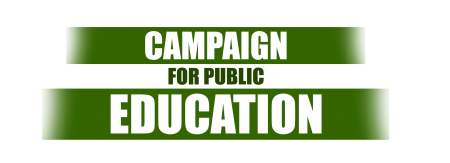Crucial first steps of early learning
Toronto Star Mar 03, 2008 Kristin Rushowy
It began 125 years ago in Toronto, a class of 80 students with one teacher – assisted by seven teachers in training.
Since then, kindergarten has come to be regarded as crucial in children's development. So much so the provincial government has introduced a new curriculum, mandated smaller classes for the primary grades – capped at 20 students – and is looking to implement full-day learning for its youngest pupils.
And given all the focus on the early years, some experts are saying there should also be more focused training available to kindergarten teachers.
"In our programs (at education faculties), we do teach things that relate to curriculum and instruction, there is child development but it doesn't cover the whole span – it doesn't have the special attention that is needed" on the early and emerging development and skills of young children, said professor Linda Cameron of the Ontario Institute for Studies in Education at the University of Toronto.
What's important is kindergarten teachers have a deeper understanding of the early and emerging literacy, numeracy and verbal skills of the young child. "It's blown past them but not focused on," she said.
People who want to teach younger students earn a primary-junior designation at university, but that covers everything from junior kindergarten to Grade 6.
At OISE, Cameron teaches a course about being a kindergarten teacher "and it's fully subscribed, every time." The Ontario College of Teachers is also in the process of implementing a specialized kindergarten course for working teachers.
And last summer, the Ontario English Catholic Teachers' Association ran workshops for kindergarten teachers. Cameron, a presenter and former kindergarten teacher herself, said teachers came up to her afterwards and said, "this is really the first time anyone has paid any attention to us."
James Ryan, first vice-president of the association, says kindergarten teachers are well-trained but agreed there could be more professional development. Their job, he added, is really one-of-a-kind.
"They not only have to be a child's teacher, but also a surrogate mother or father," he said. "They have to be a psychologist as well as a teacher and the things they are doing in kindergarten these days, they really are building the foundation for learning, especially in the area of language development."
Kindergarten is in focus right now as school boards around Greater Toronto begin kindergarten registration.
The Peel District School Board has created a kit for parents with an outline of what kindergarten is like as well as activities for parents to do with their child. Board spokesperson Brian Woodland said the kit serves to build a home and school connection even before children arrive.
The Peel board also operates several readiness centres in its schools, which help get preschoolers off on the right foot. Parent Nikhat Khan attends such a centre two days a week at Hickory Wood Public School in Brampton with her 4-year-old daughter Manaar.
Manaar will start junior kindergarten in the fall, and Khan believes she's more than ready.
"We mostly speak our first language (Urdu) at home," said Khan. "So her English has improved a lot."
The Toronto District School Board, which designated February as kindergarten registration month – although families can register at any time – was also celebrating the 125th anniversary of kindergarten in the city, among the first to offer learning for such young children.
"Kindergarten teachers are magical to me," said Jill Worthy, a Toronto board superintendent who is responsible for the early years. "The way they can bring a group of 3- to 5-year-olds together and engage them: It's a marvellous feat."
Thorncliffe Park Elementary School, believed to be the largest in North America, has 26 kindergarten classes – 13 in the morning and 13 in the afternoon.
Its teachers tend to work in groups of two or three planning lessons, with Dianne Hillier as a lead teacher for the entire group.
She's been at the school for 11 years, and teaching for 14, and completed an undergraduate degree in early childhood education at Ryerson before earning her bachelor of education at York University.
While it may appear students spend a lot of time playing, there's actually a lot of learning and social development going on, she said. "Everything you need to know you learn in kindergarten, it's so true."
Helen Gourgiotis, who teaches in the kindergarten classroom connected to Hillier's, also incorporates literacy and numeracy into play.
She might transform the play area into a grocery store, where children write out a grocery list and have play money to purchase items. On Valentine's Day, she turned it into a post office, where children could write letters to their friends.
"For them, it's play," she said. "But we are purposefully putting those experiences in there."

